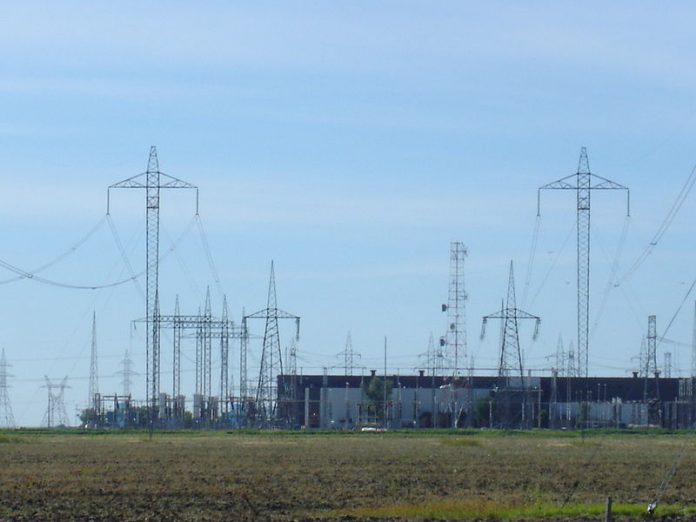Senate Bill 1278, sponsored by state Sen. Kelly Hancock (R-Fort Worth), would require Texas wind and solar companies to pay the costs for backup or supplemental power needed whenever they cannot deliver electricity reliably to the grid. Currently, those costs are imposed on ratepayers.
The bill requires the Electric Reliability Council of Texas (ERCOT), which oversees 90 percent of Texas’ power market, “to purchase ancillary services and replacement power sufficient to manage net load variability.”
“[ERCOT] shall ensure that ancillary services necessary to facilitate the transmission of electric energy are available at reasonable prices … [and] ancillary services costs incurred by the ERCOT … to address reliability issues arising from the operation of intermittent wind and solar resources must be directly assigned by the ERCOT … to those resources,” says the bill.
The bill defines “ancillary services” as “services necessary to facilitate the transmission of electric energy including load following, standby power, backup power, reactive power, and any other services as the Commission may determine by rule.”
The Senate passed the legislation by a wide margin.
Reliable Power Shortfall
During the discussion of Hancock’s bill, Texas lawmakers said the massive government support for wind and solar power, including federal and state subsidies, and state mandates have produced challenges for the electric power grid.
Lacking federal or state support, traditional power plants usually have to operate full time in order to be profitable. The prices paid for the electricity generated to regulate and supplement the intermittent flow of electricity from wind and solar facilities and to replace that power when, due to weather conditions, they are offline, are not enough to keep many fossil fuel power plants in business.
A deep February freeze caused multiday blackouts across much of the state.
The power outages came after most wind and solar power in the state went offline in a matter of hours. Fossil fuel facilities couldn’t take up all the slack, in part, because several coal-fueled power plants in the state had recently closed, and ERCOT diverted power from gas pipelines and switching stations to homes. This resulted in resulted in the pipes freezing and natural gas facilities finding themselves out fuel and unable to operate.
Preventing similar power shortfalls is what spurred Hancock to offer SB 1278.
‘Cost is Socialized’
Adding wind and solar to the ERCOT grid has resulted in unintended negative consequences, says Bill Peacock, policy director of the Energy Alliance.
“Variability is the bane of grid operators,” said Peacock. “The problem is wind power often floods the market when it is not needed and often doesn’t show up when it is needed.
“The first lowers prices and profits, while the second increases prices, but these costs are socialized across providers and ratepayers, rather than paid for by renewables,” Peacock said. “If wind and solar providers are are going to flood the market when the weather is ideal, they should also pay for the added costs when they don’t show up.”
Texas Central Planners to Blame
The blame for Texas’ energy crisis rests squarely on ERCOT’s support for intermittent power sources, says Robert Bradley, Jr., Ph.D., CEO of the Institute for Energy Research.
“The once-strong Texas grid has been severely weakened by adding unreliable, intermittent renewables to the system and by discouraging, early retiring, and not adding reliable natural gas and coal to the grid,” Bradley said. “ERCOT’s centrally planned pricing system is based on the lowest marginal cost bid.
“This set up the failure of all failures since wind and solar can bid the lowest, often even negative bids, because they have no fuel costs, and get a lucrative federal tax credit with each unit or production, needed or not,” Bradley said.
Socialized Power Lines
Another unfair advantage Texas provided to wind producers is the billions of dollars consumers, ratepayers, and taxpayers for were forced to spend to build electric transmission lines from remote “resource-rich, high wind areas” in far west Texas to deliver power to urban areas hundreds of miles away, says Jason Isaacs, a former state representative and director of Life: Powered, a project of the Texas Public Policy Foundation (TPPF).
“The Texas Panhandle was designated as a ‘Competitive Renewable Energy Zones (CREZ)’ by the Texas Public Utility Commission (PUC) in 2008,” said Isaacs. “The PUC then called for erecting a network of transmission lines at taxpayer expense spanning over 2,300 miles to bring wind power from remote areas to Texas population centers.”
These transmission lines for wind never would have been built absent the state socializing the costs, agrees Peacock.
“No one would have ever built transmission lines to West Texas for wind and solar plants if the Texas Legislature had not mandated it,” Peacock said. “The costs are too high and the loss of energy along the way makes the lines very inefficient.
“To date, CREZ has cost about $8.6 billion, every penny of which has been paid by Texas consumers,” Peacock said. “By 2029, those cost could top $13.3 billion.”
‘Require Reliable Generation’
February’s blackouts and April’s electricity conservation alerts are a wakeup call for policymakers to prioritize grid reliability, says Isaacs.
“The Legislature should unapologetically support bills to require reliable generation and place the cost on the generators who fail to supply it, not on the people of Texas,” said Isaacs. “In a recent TPPF poll, 70 percent of Texans surveyed agreed wind and solar should be required to provide a consistent amount of electricity to keep the grid reliable.
“Moreover, those polled said the cost – both financial and in lost productivity – of unreliable electricity should be borne by the generators that cause it, not by Texans as a whole,” Isaacs said.
Duggan Flanakin (dflanakin@gmail.com) writes from Austin, Texas.


























